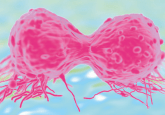Circulating tumor DNA: new horizons for improving cancer treatment

Recent cancer progress has been too slow [1,2]. Resistance to current therapeutics represents the major problem [3]. More recent developed technique of circulating tumor DNA (ctDNA) [4] detection and subsequently next-generation sequencing (NGS) application in these ‘fluid’ biopsies provides a partial explanation of therapeutic resistance due to the emergence of mutation. This mutational emerging heterogeneity assessment shapes a new roadmap for more effective therapeutic development [3].
Recent evidence suggests that progress in management of patients with advanced and metastatic cancer remains modest over the last decade. Although the use of novel sophisticated technologies is a reality, little progress has occurred in clinical oncology. Recent data on tumor and patient ‘diversity’ shape now an exciting pathway in achieving the desired goal of a true personalized medicine for cancer patients [5]. We have to keep in mind that although current oncological practice is based on standardized single biopsy-based approach, serious important limitations in predicting resistance to current therapies and tumor progression are existing.
Click here to view the full article



